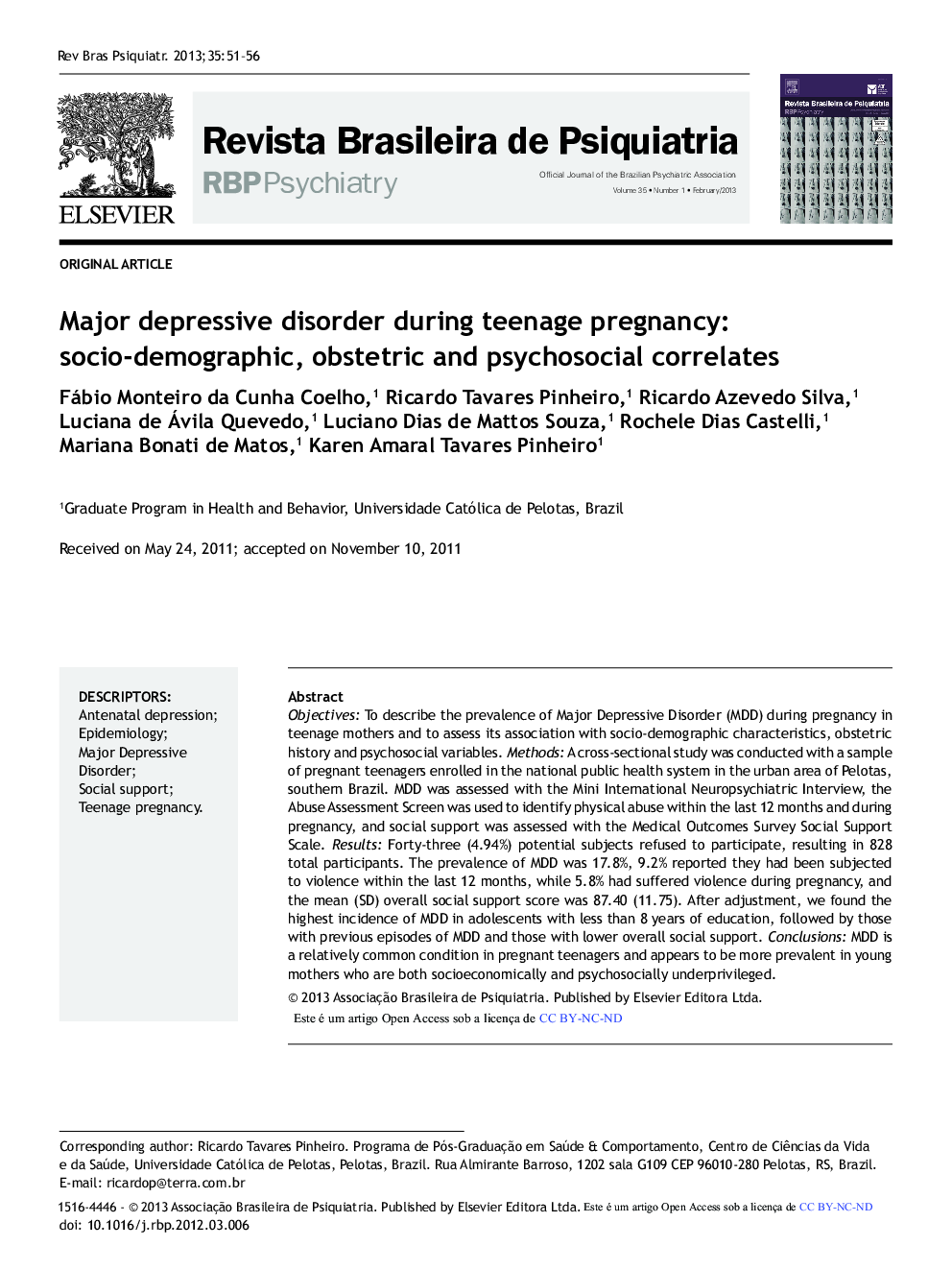| Article ID | Journal | Published Year | Pages | File Type |
|---|---|---|---|---|
| 4190391 | Revista Brasileira de Psiquiatria | 2013 | 6 Pages |
ObjectivesTo describe the prevalence of Major Depressive Disorder (MDD) during pregnancy in teenage mothers and to assess its association with socio-demographic characteristics, obstetric history and psychosocial variables.MethodsA cross-sectional study was conducted with a sample of pregnant teenagers enrolled in the national public health system in the urban area of Pelotas, southern Brazil. MDD was assessed with the Mini International Neuropsychiatric Interview, the Abuse Assessment Screen was used to identify physical abuse within the last 12 months and during pregnancy, and social support was assessed with the Medical Outcomes Survey Social Support Scale.ResultsForty-three (4.94%) potential subjects refused to participate, resulting in 828 total participants. The prevalence of MDD was 17.8%, 9.2% reported they had been subjected to violence within the last 12 months, while 5.8% had suffered violence during pregnancy, and the mean (SD) overall social support score was 87.40 (11.75). After adjustment, we found the highest incidence of MDD in adolescents with less than 8 years of education, followed by those with previous episodes of MDD and those with lower overall social support.ConclusionsMDD is a relatively common condition in pregnant teenagers and appears to be more prevalent in young mothers who are both socioeconomically and psychosocially underprivileged.
